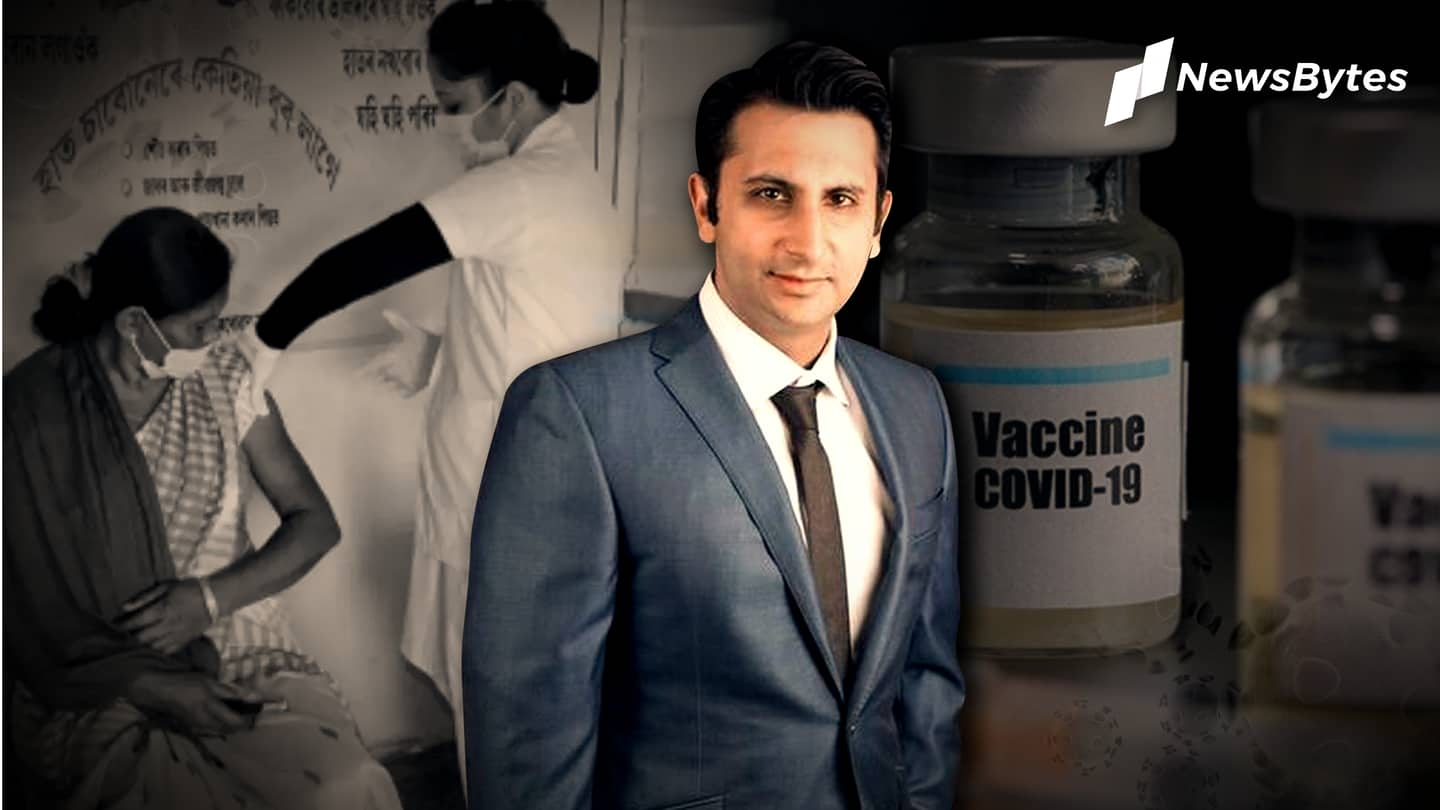
Private hospitals may get coronavirus vaccine by March: Serum CEO
What's the story
While the Indian government has prioritized healthcare workers and high-risk individuals in its vaccine program, doses of the coronavirus vaccine will be available for private companies, hospitals, and individuals by as early as March, the CEO of Serum Institute of India (SII), Adar Poonawalla, said on Sunday.
Just yesterday, the drug regulator gave the emergency use authorization to Covishield and COVAXIN.
Here's more.
Details
Risks that SII took paid off, said Poonawalla
Yesterday, Poonawalla was pleased that the Drugs Controller General of India (DCGI) Dr. VG Somani gave approval to the vaccine, which is developed by Oxford University and pharma giant AstraZeneca.
"All risks Serum Institute of India took with stockpiling the vaccine, have finally paid off. COVISHIELD, India's first COVID-19 vaccine is approved, safe, effective, and ready to roll-out in the coming weeks," he tweeted.
Statement
Government would need 50-60 million doses in a month
Poonawalla informed on Sunday that his company, the largest producer of vaccines in terms of the number of doses, hadn't received a formal order from the government.
The deliveries will start seven to 10 days after the notification.
"The government indicated they would need 50-60 million doses in a month, or 10-15 million doses a week," Poonawalla was quoted as saying by TOI.
Plans
After government's requirement is fulfilled, others will get doses
SII's CEO said after the government's requirements are met, the vaccine will be available for private companies and hospitals.
"We will recommend a longer gap (of two and a half months) between the two full doses of the shot as this takes up efficacy to the 90% level," he added, also disclosing that the efficiency of vaccine increases if the gap is three months.
Price
Government has been offered a special price of Rs. 200/shot
Poonawalla said the government is getting the vaccine at a "special price" of Rs. 200 per shot, for the first 100 million doses.
"Whatever we give to the government, they are going to provide it free to the people of India and when we subsequently sell it in the private market, the MRP is going to be Rs. 1,000 per shot," he told NDTV.
Restriction
SII is restricted from exporting vaccines to other nations
When the vaccine is eventually out for sale in the commercial market, the cost of both doses will be Rs. 2,000.
Poonawalla also revealed that for now the coronavirus vaccine will not be exported, as the federal government has imposed curbs on the company.
"We can only give the vaccines to the government of India at the moment," he added.
Timeline
Exact schedule will be revealed soon: Dr. VK Paul
Now that two vaccines have been granted emergency approval in the second-worst hit nation, the government will begin the mass inoculation drive soon.
NITI Aayog member, Dr. VK Paul, who also heads the National Expert Group on Vaccine Administration for COVID-19, said the exact schedule will be out soon, and so will the details about where and how the vaccines are being mobilized.
Priority
In first wave, one crore workers to be inoculated
Dr. Paul said India has an infrastructure to inoculate one crore healthcare workers.
"This will be the first wave of the first phase, which will begin with healthcare workers because it is easier to conduct the vaccinations for them as they are already in healthcare facilities," he explained.
In the first phase, 30 crore people are likely to get the doses.
Details
Corona warriors, people above 50 next in line
Dr. Paul said the aim is to complete the exercise as fast as possible. After healthcare workers, frontline corona warriors, and those above 50 will be administered the doses.
"It will start stage-wise but will not be in a series — we will not finish the last healthcare worker's vaccination before starting with frontline workers. Soon, it will become simultaneous," the top official said.
Election
An election-like process could be deployed for vaccinating citizens
He revealed that the government is mulling an election-like process for giving the vaccine to a bigger population.
"When we go to the field for the 26 crore people above the 50-year age group, that is the time when this idea of the election program-aligned, booth-based approach will be taken. But, for now, we will be going through the healthcare facilities," he told IE.